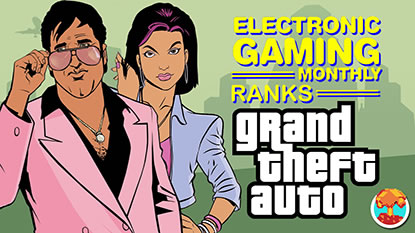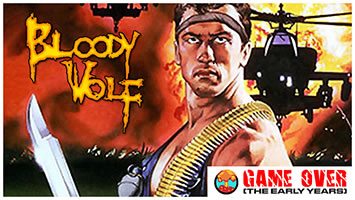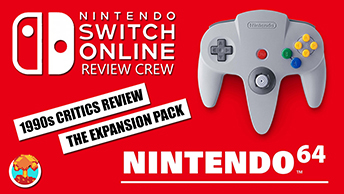- CLASSIC MAGAZINES
- REVIEW CREW
A show recapping what critics thought back
when classic games first came out! - NEXT GENERATION'S BEST & WORST
From the worst 1-star reviews to the best
5-stars can offer, this is Next Generation! - NINTENDO POWER (ARCHIVE)
Experience a variety of shows looking at the
often baffling history of Nintendo Power! - MAGAZINE RETROSPECTIVE
We're looking at the absolutely true history of
some of the most iconic game magazines ever! - SUPER PLAY'S TOP 600
The longest and most ambitious Super NES
countdown on the internet! - THEY SAID WHAT?
Debunking predictions and gossip found
in classic video game magazines! - NEXT GENERATION UNCOVERED
Cyril is back in this spin-off series, featuring the
cover critic review the art of Next Generation! - HARDCORE GAMER MAGAZING (PDF ISSUES)
Download all 36 issues of Hardcore Gamer
Magazine and relive the fun in PDF form!
- REVIEW CREW
- ELECTRONIC GAMING MONTHLY
- ELECTRONIC GAMING MONTHLY RANKS
From Mario to Sonic to Street Fighter, EGM
ranks classic game franchises and consoles! - ELECTRONIC GAMING MONTHLY BEST & WORST
Counting down EGM’s best and worst reviews
going year by year, from 1989 – 2009! - ELECTRONIC GAMING BEST & WORST AWARDS
11-part video series chronicling the ups and
downs of EGM’s Best & Worst Awards!
- ELECTRONIC GAMING MONTHLY RANKS
- GAME HISTORY
- GAME OVER: STORY BREAKDOWNS
Long-running series breaking down game
stories and analyzing their endings! - A BRIEF HISTORY OF GAMING w/ [NAME HERE]
Real history presented in a fun and pithy
format from a variety of game historians! - THE BLACK SHEEP
A series looking back at the black sheep
entries in popular game franchises! - INSTANT EXPERT
Everything you could possibly want to know
about a wide variety of gaming topics! - FREEZE FRAME
When something familiar happens in the games
industry, we're there to take a picture! - I'VE GOT YOUR NUMBER
Learn real video game history through a series
of number-themed episodes, starting at zero! - GREAT MOMENTS IN BAD ACTING
A joyous celebration of some of gaming's
absolute worst voice acting!
- GAME OVER: STORY BREAKDOWNS
- POPULAR SHOWS
- DG NEWS w/ LORNE RISELEY
Newsman Lorne Riseley hosts a regular
series looking at the hottest gaming news! - REVIEW REWIND
Cyril replays a game he reviewed 10+ years
ago to see if he got it right or wrong! - ON-RUNNING FEUDS
Defunct Games' longest-running show, with
editorials, observations and other fun oddities! - DEFUNCT GAMES QUIZ (ARCHIVE)
From online quizzes to game shows, we're
putting your video game knowledge to the test!- QUIZ: ONLINE PASS
Take a weekly quiz to see how well you know
the news and current gaming events! - QUIZ: KNOW THE GAME
One-on-one quiz show where contestants
find out if they actually know classic games! - QUIZ: THE LEADERBOARD
Can you guess the game based on the classic
review? Find out with The Leaderboard!
- QUIZ: ONLINE PASS
- DEFUNCT GAMES VS.
Cyril and the Defunct Games staff isn't afraid
to choose their favorite games and more! - CYRIL READS WORLDS OF POWER
Defunct Games recreates classic game
novelizations through the audio book format!
- DG NEWS w/ LORNE RISELEY
- COMEDY
- GAME EXPECTANCY
How long will your favorite hero live? We crunch
the numbers in this series about dying! - VIDEO GAME ADVICE
Famous game characters answer real personal
advice questions with a humorous slant! - FAKE GAMES: GUERILLA SCRAPBOOK
A long-running series about fake games and
the people who love them (covers included)! - WORST GAME EVER
A contest that attempts to create the worst
video game ever made, complete with covers! - LEVEL 1 STORIES
Literature based on the first stages of some
of your favorite classic video games! - THE COVER CRITIC
One of Defunct Games' earliest shows, Cover
Critic digs up some of the worst box art ever! - COMMERCIAL BREAK
Take a trip through some of the best and
worst video game advertisements of all time! - COMIC BOOK MODS
You've never seen comics like this before.
A curious mix of rewritten video game comics!
- GAME EXPECTANCY
- SERIES ARCHIVE
- NINTENDO SWITCH ONLINE ARCHIVE
A regularly-updated list of every Nintendo
Switch Online release, plus links to review! - PLAYSTATION PLUS CLASSIC ARCHIVE
A comprehensive list of every PlayStation
Plus classic release, including links! - RETRO-BIT PUBLISHING ARCHIVE
A regularly-updated list of every Retro-Bit
game released! - REVIEW MARATHONS w/ ADAM WALLACE
Join critic Adam Wallace as he takes us on a
classic review marathon with different themes!- DEFUNCT GAMES GOLF CLUB
Adam Wallace takes to the links to slice his way
through 72 classic golf game reviews! - 007 IN PIXELS
Adam Wallace takes on the world's greatest spy
as he reviews 15 weeks of James Bond games! - A SALUTE TO VAMPIRES
Adam Wallace is sinking his teeth into a series
covering Castlevania, BloodRayne and more! - CAPCOM'S CURSE
Adam Wallace is celebrating 13 days of Halloween
with a line-up of Capcom's scariest games! - THE FALL OF SUPERMAN
Adam Wallace is a man of steel for playing
some of the absolute worst Superman games! - THE 31 GAMES OF HALLOWEEN
Adam Wallace spends every day of October afraid
as he reviews some of the scariest games ever! - 12 WEEKS OF STAR TREK
Adam Wallace boldly goes where no critic has
gone before in this Star Trek marathon!
- DEFUNCT GAMES GOLF CLUB
- DAYS OF CHRISTMAS (ARCHIVE)
Annual holiday series with themed-episodes
that date all the way back to 2001!- 2015: 30 Ridiculous Retro Rumors
- 2014: 29 Magazines of Christmas
- 2013: 29 Questionable Power-Ups of Christmas
- 2012: 34 Theme Songs of Christmas
- 2011: 32 Game Endings of Christmas
- 2010: 31 Bonus Levels of Christmas
- 2009: 30 Genres of Christmas
- 2008: 29 Controls of Christmas
- 2007: 34 Cliches of Christmas
- 2006: 33 Consoles of Christmas
- 2005: 32 Articles of Christmas
- 2004: 31 Websites of Christmas
- 2003: 29 Issues of Christmas
- 2002: 28 Years of Christmas
- 2001: 33 Days of Christmas
- NINTENDO SWITCH ONLINE ARCHIVE
- REVIEW ARCHIVE
- FULL ARCHIVE
Has Nintendo Learned The Lessons of the N64?
ISSUE 2: TOO SAFE
What Next Generation Said: "The vast majority of Nintendo 64 games to date are made up of either coin-op or PC conversions, sequels to previous Nintendo hits, or -- in the case of Shadows of the Empire -- no brainer adaptations of no-brainer
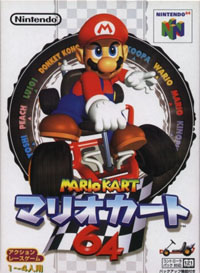
"Sure, initially one of the most exciting aspects of Nintendo 64's future was the promise of 64-bit updates of its classic 8- and 16-bit franchises. But a system cannot live on sequels alone. Yes, Super Mario 64 set a new standard in platform-style gaming, but how unexpected are PilotWings 64, Mario Kart 64, or Star Fox 64? In many cases, once the effect of the 3D graphics (an effect which is lessened with each new update) has gone away, Nintendo 64 gamers are left playing essentially the same games they played on the Super NES and even NES.
"It would be nice to think that with superstar talent like Shigeru Miyamoto, Nintendo will once again be the company responsible for creating new gaming paradigms, especially considering the new technical freedoms enabled by Nintendo 64. In the gaming industry's infancy, gamers looked to Nintendo to tell them what videogaming was all about. From the lessons offered
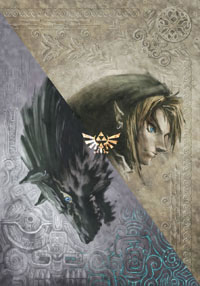
Has Nintendo Learned Their Lesson? For a company that is known for its innovation and popular game franchises, Nintendo has had a hard time coming up with new game characters to exploit. At this year's E3 every single one of their games was based on some sort of popular franchise, such as Mario, Zelda, Wario and Super Smash Bros. That's not to say they won't eventually come out with new franchises, but for the first year or two it looks like we're going to be chewing on a healthy diet of sequels and updates. This is especially depressing when you take into consideration how fearless they are with their new controller, if there was ever a time for Nintendo to go crazy and bring us a bunch of new franchises now would be a perfect time. What the Wii needs is something brand-new, similar to what Pikmin did on the GameCube or Animal Crossing did on the Nintendo 64. I'm not sure what they could do, but with people like Shigeru Miyamoto on staff it would have been nice to see something fresh. Instead we have a control that is new and innovative, but games that we've seen many times before.
ISSUE 3: CARTRIDGES
What Next Generation Said: Next Generation: The frustration left by game developers and publishers over Nintendo's choice to go with a cartridge-based machine in the age of the CD-ROM has been well documented. And although Nintendo insisted otherwise, and even managed to lull the masses into a false sense of security with great-looking games such as Super Mario 64 and WaveRace 64, the concerns over a cartridge-based machine in the age of advanced 3D gaming are obvious and
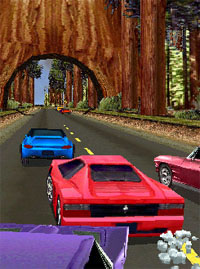
"Not as crucial, but not to be discounted entirely, is N64's lack of ability to include FMV sequences in story-based games. FMV carries with it a well-deserved stigma because of several missteps in the application of video, but many recent CD-ROM games have managed to find a natural and satisfying place for FMV in their games. Tomb Raider uses FMV sequences as a reward for finishing a level and enhances the cinematic feel of the game. It would be difficult to argue that any Nintendo 64 game can offer the same rich production values. And aesthetics aside, is there anyone who would claim that the experience of playing Shadow of the Empire would not have been enhanced immeasurably has LucasArts been able to incorporate a full CD version of John William's Star Wars musical score?"
Has Nintendo Learned Their Lesson? One could argue that Nintendo learned their lesson five years ago when they released the GameCube. This will be the first time Nintendo has ever released games on a non-proprietary format. The GameCube's mini-DVDs was a step in the right direction, but some complained that the small size hindered larger games. This will not be an issue this time
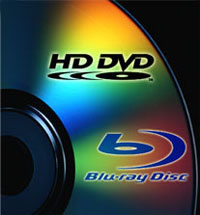
While it's not necessarily the same thing, Nintendo is suffering from one technical problem that could be likened to their stubborn cartridge support. I'm talking about their refusal to support newer Hi-Def TVs. In a world where all of the other consoles are going for 720 and 1080 support, the Wii is being left behind. Much like their decision not to embrace disc technology ten years ago, Nintendo's refusal to support HD feels like the system's one major mistake. We're only two years away from the official switch from standard def to hi-def, something that could ultimately make Nintendo look outdated. Could this be as big a problem as cartridges were to the Nintendo 64? I guess we'll have to revisit this article in a few years and find out.
HOME |
CONTACT |
NOW HIRING |
WHAT IS DEFUNCT GAMES? |
NINTENDO SWITCH ONLINE |
RETRO-BIT PUBLISHING
Retro-Bit |
Switch Planet |
The Halcyon Show |
Same Name, Different Game |
Dragnix |
Press the Buttons
Game Zone Online | Hardcore Gamer | The Dreamcast Junkyard | Video Game Blogger
Dr Strife | Games For Lunch | Mondo Cool Cast | Boxed Pixels | Sega CD Universe | Gaming Trend
Game Zone Online | Hardcore Gamer | The Dreamcast Junkyard | Video Game Blogger
Dr Strife | Games For Lunch | Mondo Cool Cast | Boxed Pixels | Sega CD Universe | Gaming Trend
Copyright © 2001-2024 Defunct Games
All rights reserved. All trademarks are properties of their respective owners.
All rights reserved. All trademarks are properties of their respective owners.













